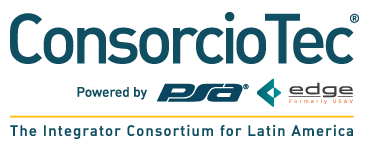Which company was the customer who called us from? When was the last meeting with him? Have we already sent you the last document? If these types of questions are becoming something daily in your SME, it is time to think about customer management alternatives such as CRM.
But it is important to start by defining: what is a CRM and what is its function?
CRM stands for Customer Relationship Management, which in turn in Spanish is called customer relationship management. This software is used to enter and manage important information for businesses. Data2CRM argues in a 2018 report that 50% of sales teams reported improved productivity with CRM software, which makes us think that, more than a platform for data, it is a tool that helps the growth of any company.
Do you still use Excel for your SME's databases?
Don't be afraid to answer yes. Hundreds of small and medium-sized businesses still use giant files in Excel to store their customers' information. At first it can be simple if you have less than 50 people, but with the step in which the emails increase, and more and more prospects arrive, it can become chaos.
Every time you want to search for a name or phone number of a client or partner, you will have to go to that giant document with thousands of data. Don't you find it very tedious? And look at this data: 87% of current CRM systems are cloud-based, which indicates that little by little companies have realized that these systems do not mean a luxury acquisition, but something very useful for internal sales processes.
Many SMB CEOs think that acquiring a CRM system is expensive and complex to manage; however, that is nothing more than a myth. Nowadays there are CRM for paid SMEs, free, with multiple platforms that adapt to what you want as a company.
One of the great advantages of using CRM lies in better information management. Traditionally, companies start by managing their databases in Excel, which helps to some extent. The problem begins when there are several employees in charge of nurturing these databases. How do we know what the final version is and do we set governance parameters on this information? How do we avoid multiple data sheets with contacts hanging around? How do we evolve in our management of the company's business contacts?
The fact that CRM systems work in the cloud has added a component of simplicity and efficiency to information management and, what's better, added many technological features that improve the sales process.
The importance of personalization
The client must be given a personalized treatment, and that implies that SMEs have digital tools that help them collect each process and activity related to it.
A long time ago, companies had among their contacts acquaintances, friends and colleagues. However, thanks to the introduction of the digital world and ad campaigns, it is possible to collect leads from people from other countries and cities interested in the services of your SME.
How does a CRM help here? It's simple: in a CRM you can add a lot of information about your contacts, but also add important notes to keep in mind for future contacts. You can also add reminders and integrate with your own mail calendar to schedule calls, emails, and even meetings. Finally, most CRMs on the market allow you to create email templates to make the contact process much easier.
Personalization allows you to have a record of every movement of the relationship with your client: the emails you sent him, appointments, the last time you talked to him, the most direct form of contact, updating of business and personal data, tasks that were left in the last call, work proposals; all. Everything that is part of the communication between your users and your SME can be saved in a CRM. These functionalities will make you always be prepared and that you can achieve more sales opportunities.
For Claudia Lineros, Operations Manager of Pymes Go Digital, this service is important because it allows to efficiently manage customer relationships: sales, solution of concerns, sending information, etc. In addition, "it increases efficiency, allows us to be timely and helps to avoid losing customers by forgetting to contact them, which can happen by the same daily movement of a company," he says.
Claudia highlights tools like HubSpot that warn when an email is seen by a customer, which allows you to determine the ideal time to contact them. "So CRM helps us get there just in time," he says. However, many of the CRMs on the market offer this functionality.
Another plus of CRM, according to Claudia, is to know and segment your audience better. "You can divide it according to the buyer's journey where it is. It can be an opportunity if you barely know him, or a qualified lead if you have had a contact with him. All the data you enter is updated in real time and is available at the time it is needed," he concludes.

